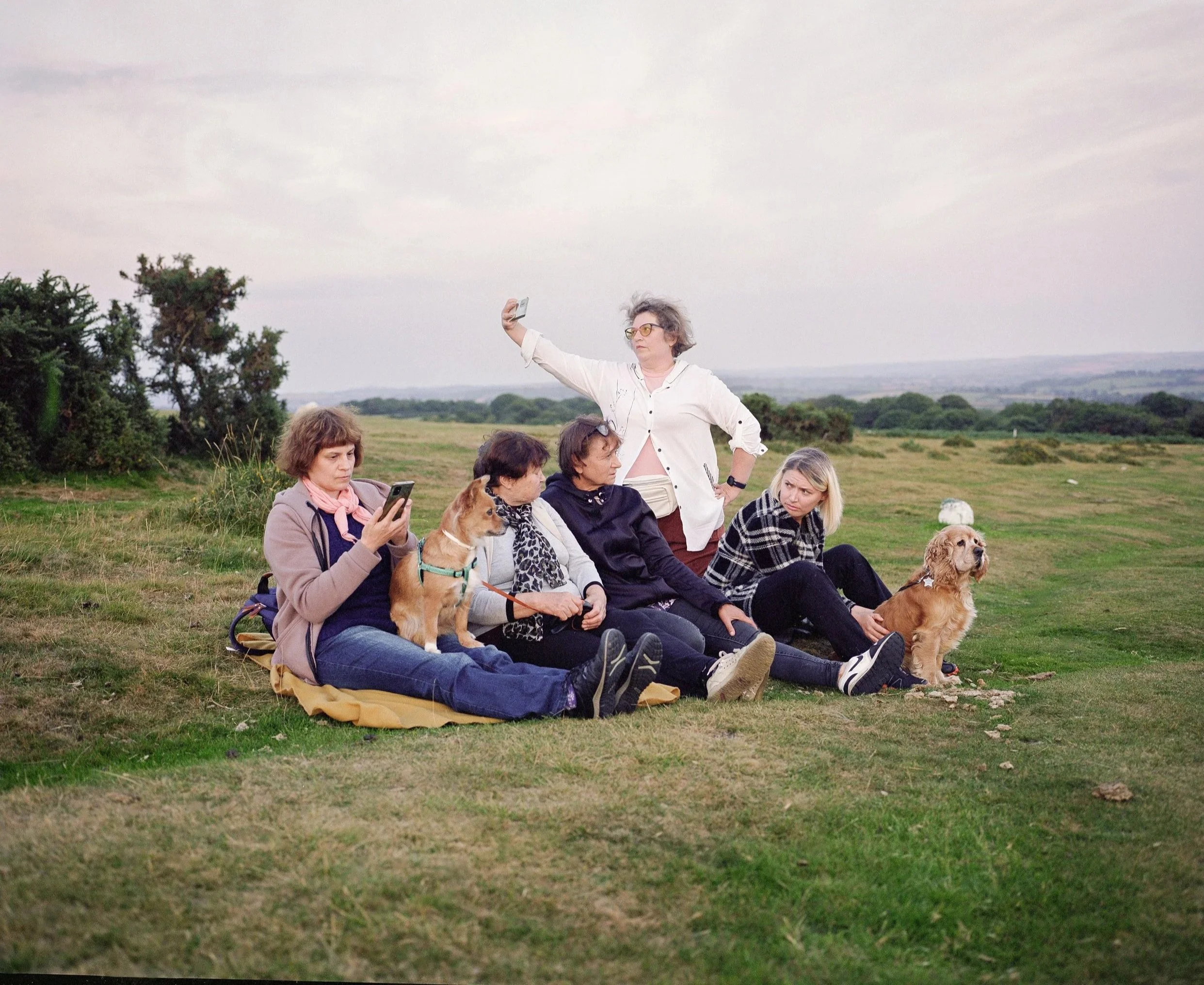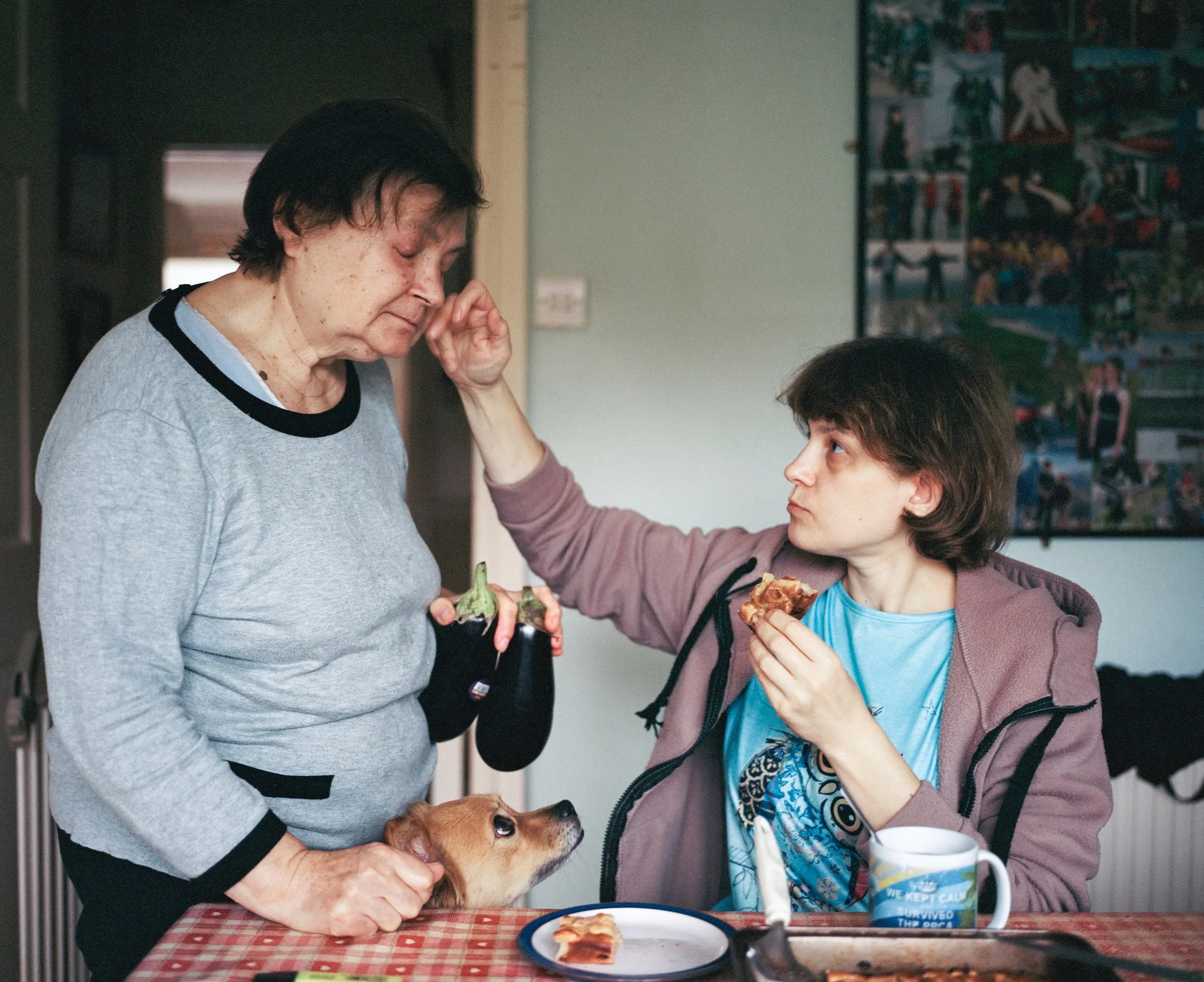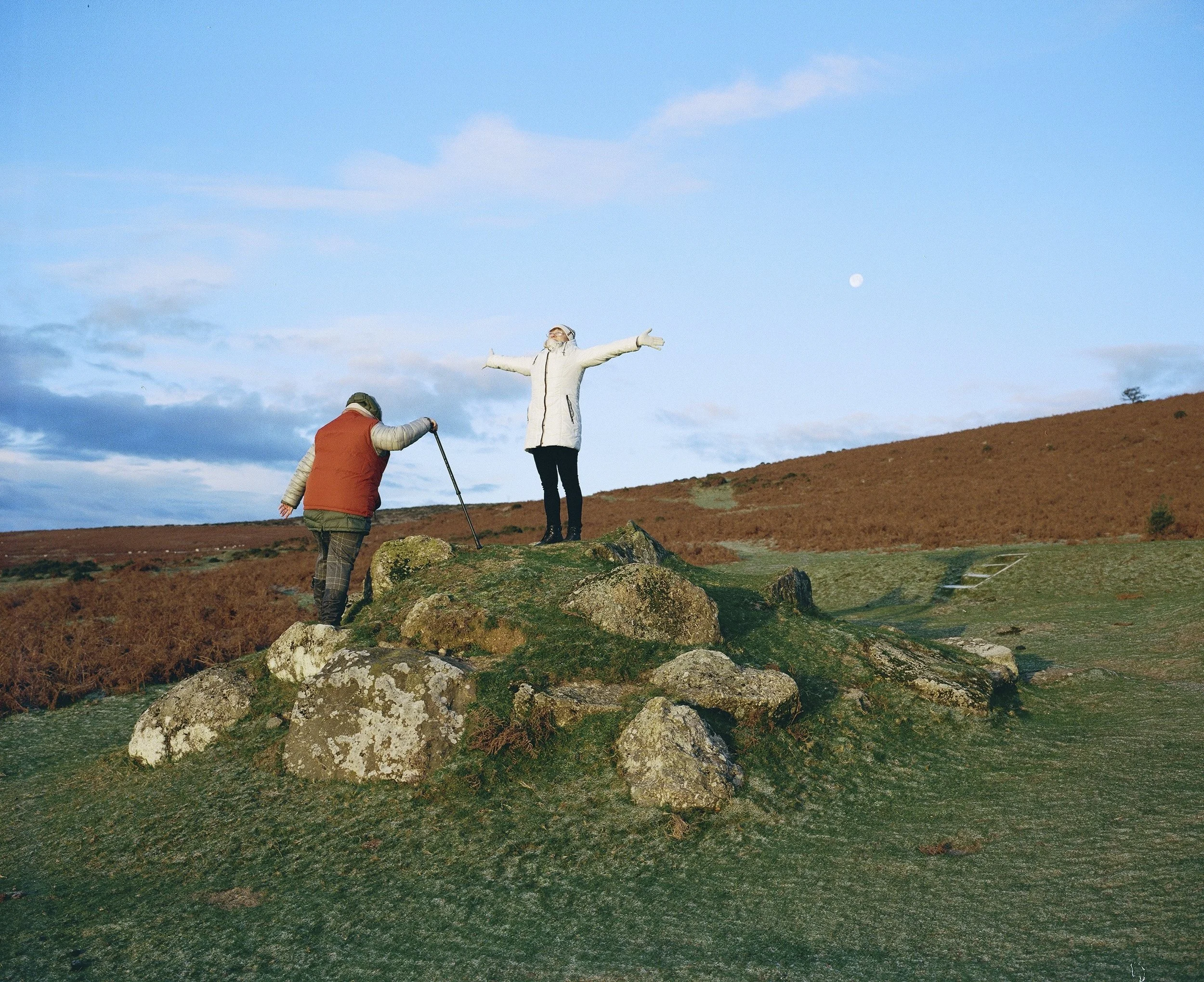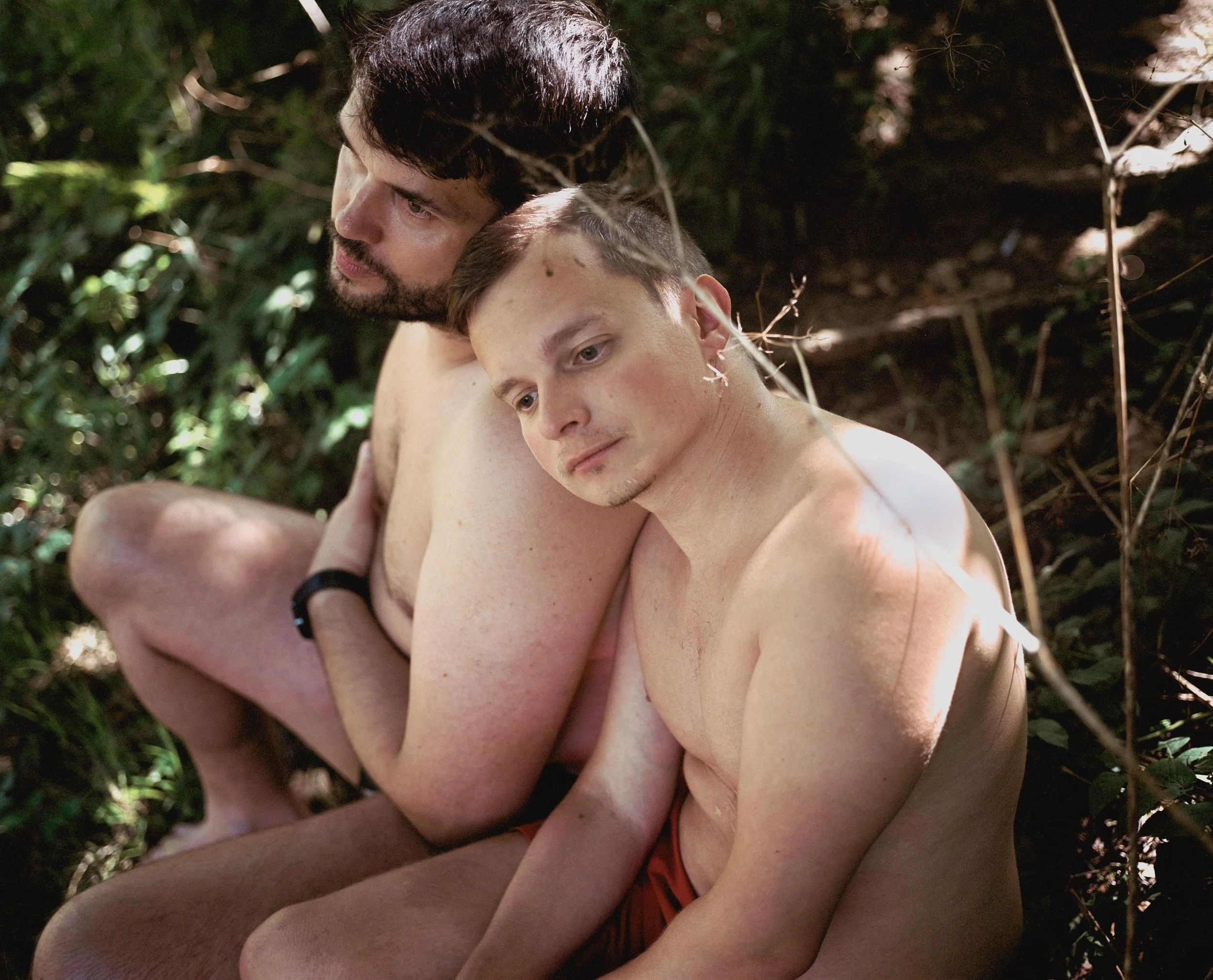On Wartime Solidarity: Hosting Ukrainian Refugees in the UK
In March 2022, just after Russia crossed into Ukraine, the UK government asked ordinary Brits to host Ukrainians in their homes. Sponsors were given £500 a month to help with bills and had to commit to at least six months and also agree to a home inspection. By September that year, 72,000 households had applied. As of 31st of March 2025, 223,400 Ukrainians were living in the UK out of government initiated pathways.
I began photographing a growing community of Ukrainians as they slowly arrived in Moorhaven, a rural village of about 400 households or so that sits on Dartmoor's foothills. I was led by the question of how it was that it was here, of all places, that had become the de facto home of people fleeing a conflict many miles away.
The willingness to host Ukrainians showed a level of public will and openness that we, certainly I, had lost faith existed in the UK. In my eyes, the scheme was a living demonstration that when people are given a direct way to help refugees, they will. Just as the UK is becoming harder to reach, even more of an island, there was something bitterly ironic and yet cautiously hopeful that so many people could seamlessly arrive here and find their home in the home of someone, in some cases in the home of someone who had voted to leave the European Union.
Migration continues to be one of the most divisive and scrutinised areas of UK policy. Deciding who is and isn’t allowed to come here has polarised society and led to irreversible fractures in our political institutions that are frightening. We can’t reach a consensus on who is an asylum seeker or a criminal anymore. The UK is far from alone on that matter.
And yet, here were these numbers of people arriving in numbers far larger than seen in the European Refugee Crisis. They arrived here safely with no serious pushback, no consequential referendums, and no bodies washed up on overseas beaches.
At worst, the scheme reflects the racist and doublesided nature of UK policy. At best, it gives us a genuine tried and tested scheme that we could use for others. Studies show that sponsors are open to hosting refugees of other nationalities off the back of the Homes for Ukraine scheme.
With these thoughts on the back of my mind, I became more and more interested in what it meant to share a home with a stranger at such juxtaposed moments in two peoples history. One side had just fled a war, the other has never known conflict – nor real political aggression or crisis.
Seeing the absurdity of British culture through the eyes of Ukrainians was fun; the obsession with manners, with politeness, with formalities. In comparison, Ukrainians seemed rude – even grotesque, especially when it came to their cooking preferences; steamed meatballs and foraged mushrooms (the latter of which took me out).
I listened to endless accounts from Ukrainians who couldn’t understand why British people don’t just say what they think and what they want. I’ve heard multiple reports of well-meaning British hosts reminding their new guests to ‘smile’. When a rural middle class village coincides with an Eastern European culture as people endure displacement, the effect will always be jarring. But at times it could be funny, and the humour of it was certainly not lost on the Ukrainian guests. Together we’d go to village fetes, picnics and street parties and marvel at how peculiar this corner of the UK is.
Inevitably, some relationships broke down, but even when they did, almost every sponsor I spoke to was left with a deep level of care for their Ukrainian guest, an attachment that felt like family – despite not even speaking the same languages in some cases.
I don’t think two people can go through sharing a home together at such pivotal and vulnerable moments in their life and not come out the other side feeling like a family – in all its British awkwardness and dysfunctionality. I think hosting Ukrainians was an eye-opening and fundamental process for the Brits in Moorhaven. It culturally challenged people and bought them closer to lived experiences beyond their doorsteps. It tested people's patience, but it massively expanded their empathy. My hope is that empathy can continue to be expanded to more people who were once strangers and helps foster a UK that feels less like an island.





